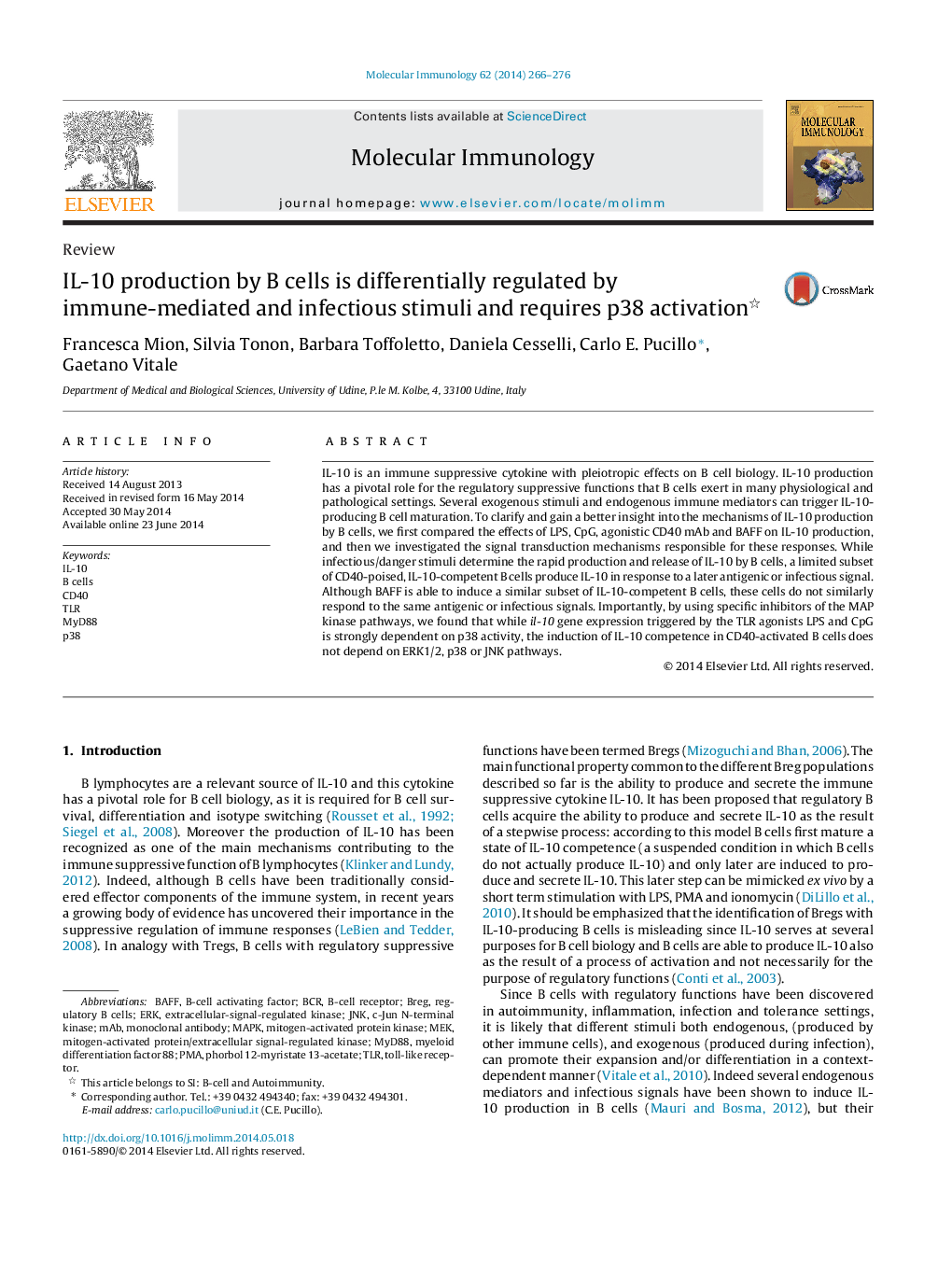| Article ID | Journal | Published Year | Pages | File Type |
|---|---|---|---|---|
| 5916879 | Molecular Immunology | 2014 | 11 Pages |
â¢In B cells immune and infectious signals act subsequently for IL-10 production.â¢Stimulation through CD40 acts as posing signal for IL-10-competent B cells.â¢Contrary to immune mediators, danger signals trigger il-10 gene expression.â¢In B cells p38 is a key regulator of il-10 gene expression.â¢In B cells p38 does not influence CD40-induction of IL-10-competent B cells.
IL-10 is an immune suppressive cytokine with pleiotropic effects on B cell biology. IL-10 production has a pivotal role for the regulatory suppressive functions that B cells exert in many physiological and pathological settings. Several exogenous stimuli and endogenous immune mediators can trigger IL-10-producing B cell maturation. To clarify and gain a better insight into the mechanisms of IL-10 production by B cells, we first compared the effects of LPS, CpG, agonistic CD40 mAb and BAFF on IL-10 production, and then we investigated the signal transduction mechanisms responsible for these responses. While infectious/danger stimuli determine the rapid production and release of IL-10 by B cells, a limited subset of CD40-poised, IL-10-competent B cells produce IL-10 in response to a later antigenic or infectious signal. Although BAFF is able to induce a similar subset of IL-10-competent B cells, these cells do not similarly respond to the same antigenic or infectious signals. Importantly, by using specific inhibitors of the MAP kinase pathways, we found that while il-10 gene expression triggered by the TLR agonists LPS and CpG is strongly dependent on p38 activity, the induction of IL-10 competence in CD40-activated B cells does not depend on ERK1/2, p38 or JNK pathways.
